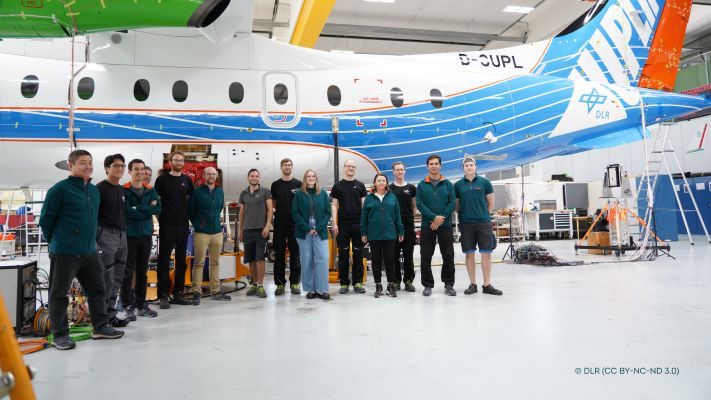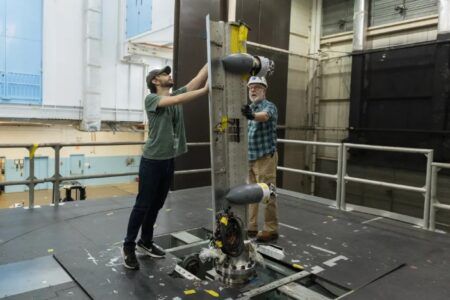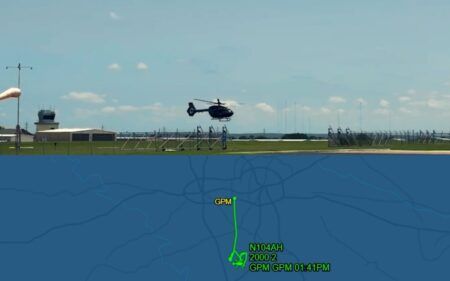Germany’s Deutsche Aircraft has completed ground vibration testing of the D328 UpLift test aircraft.
The vibration testing program, which was done with the German Aerospace Center (DLR) Institute of Aeroelasticity, is a step forward for the UpLift programme. UpLift is a German Government-funded program to accelerate the development of sustainable aviation technologies which started in 2023.
DLR is utilizing the D328 UpLift (D-CUPL) as a flying testbed for various tests, including exhaust emissions testing of different fuels and eventually hydrogen propulsion systems.
Ground vibration testing (GVT) is used to determine the aircraft’s modal properties, including its natural frequencies, damping ratios and mode shapes. This information is essential for validating structural dynamics and refining the numerical models used in flutter analysis and loads calculation.
Over a two-week test period, UpLift was suspended using actively controlled air springs. The structure was excited at over 20 locations using electrodynamic shakers, while 237 acceleration sensors captured the dynamic response.
Three aircraft configurations were tested during a total of 45 hours of excitation time. Simon Binder, senior engineer, loads and aeroelastics at Deutsche Aircraft said, “This successful GVT campaign is a cornerstone in validating the Global Finite Element Model in support of the structural modifications designed for the UpLift D-CUPL.”
Julian Sinske from the DLR Institute of Aeroelasticity said, “We can now evaluate upcoming modifications to the research aircraft in terms of their aeroelastic behaviour. I’m pleased that we conducted the test efficiently and achieved high-quality results. The new air spring support played a decisive role in this.”





